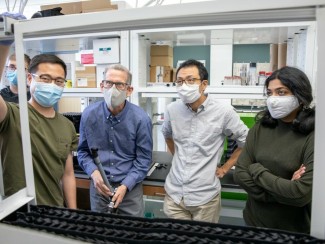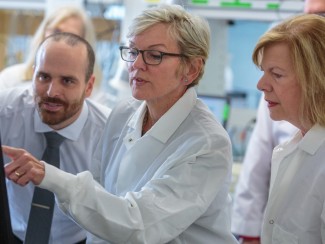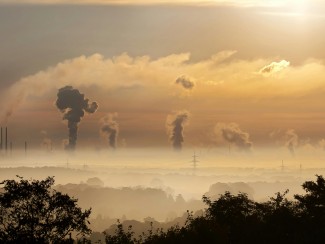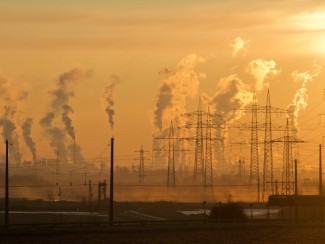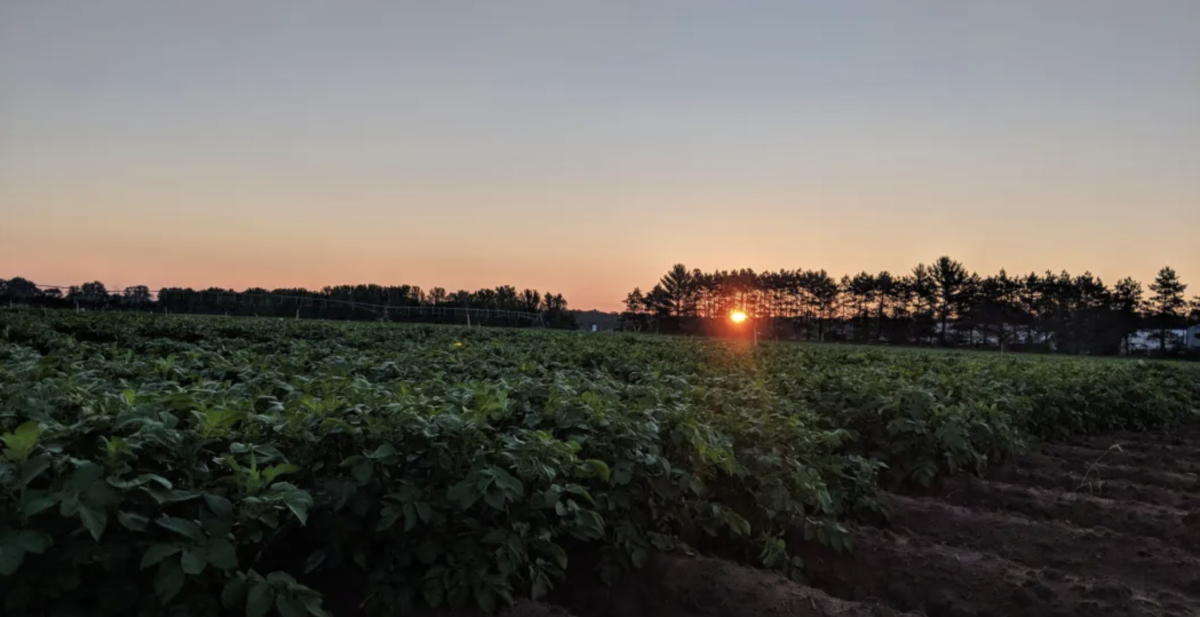
This summer, we saw Wisconsin Energy Institute researchers comment to the press on topics of soil, drought, and addressing the impacts of climate change.
Struvite recovered from wastewater could be used to suppress wildfires

Royal Society of Chemistry
Andrea Hicks, a sustainability expert at UW–Madison in the US, comments ‘The economic discussion is particularly interesting, as the firefighting agent would have a greater value than what is currently found when the struvite is sold for fertilizer, and has the potential to incentivize more struvite production from wastewater treatment plants.’
Featured Researchers
Benefits and barriers to farm carbon sequestration

Spectrum News
“The idea around carbon sequestration now is to try to reverse that process and intentionally perform land management to put back carbon, sequester it, into soils and vegetation so we can do something to help offset rising levels of CO2 in the atmosphere,” said Chris Kucharik, who co-leads the Wisconsin Initiative on Climate Change Impacts' agriculture work group.
Featured Researchers
Measuring air pollution disparities from space
Environmental Health News
"Even cities that have a lot of these monitors don't have sufficient coverage," Tracey Holloway, professor of environmental studies at the University of Wisconsin-Madison, told Environmental Health News. They're expensive, costing roughly $100,000 to install and $25,000 per year to maintain, so "there's a limit to how many they can fund in a particular state or a particular city," she said.
Featured Researchers
A Soil-Science Revolution Upends Plans to Fight Climate Change

Quanta Magazine
“I have The Nature and Properties of Soils in front of me — the standard textbook,” said Gregg Sanford, a soil researcher at the UW–Madison. “The theory of soil organic carbon accumulation that’s in that textbook has been proven mostly false … and we’re still teaching it.”
Featured Researchers
Environmental, Ag Experts Warn Drought Conditions Sign Of What’s To Come With Climate Change

Wisconsin Public Radio
"We're starting to see more applications for high capacity wells to support agricultural production in (areas outside the Central Sands region), I think, partly because of the risk involved with longer, more significant droughts," says Chris Kurcharik.
Featured Researchers
Bill Gates Pledges $1.5 Billion for Infrastructure Bill’s New Climate Projects

Wall Street Journal
Microsoft Corp. co-founder Bill Gates said his climate investment fund will commit $1.5 billion for joint projects with the U.S. government if Congress enacts a program aimed at developing technologies that lower carbon emissions.
A roughly $1 trillion infrastructure bill passed by the Senate this week would give the Energy Department $25 billion for demonstration projects funded through public-private partnerships, part of more than $100 billion to address climate change.
Featured Researchers


